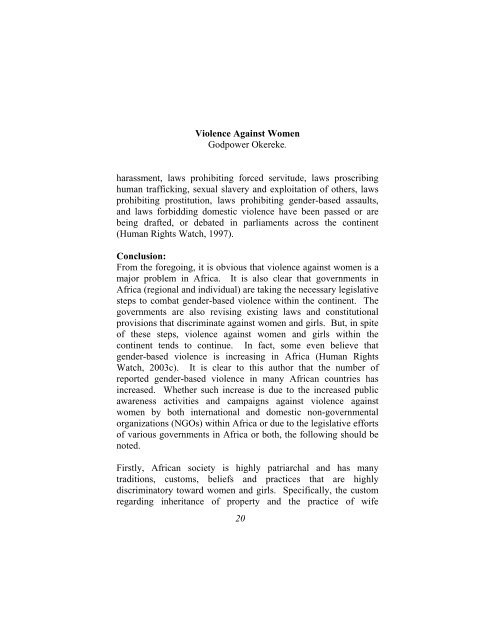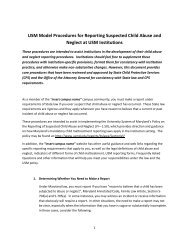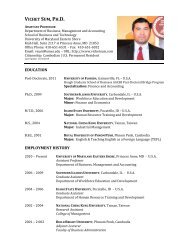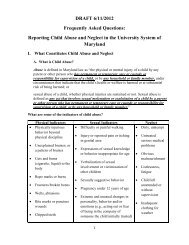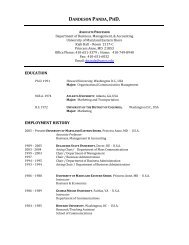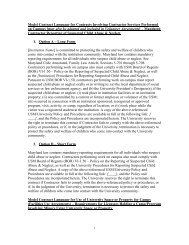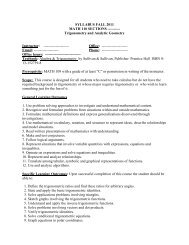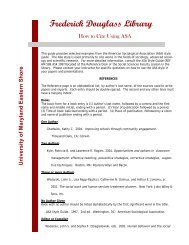violence against women in Africa
violence against women in Africa
violence against women in Africa
Create successful ePaper yourself
Turn your PDF publications into a flip-book with our unique Google optimized e-Paper software.
Violence Aga<strong>in</strong>st Women<br />
Godpower Okereke.<br />
harassment, laws prohibit<strong>in</strong>g forced servitude, laws proscrib<strong>in</strong>g<br />
human traffick<strong>in</strong>g, sexual slavery and exploitation of others, laws<br />
prohibit<strong>in</strong>g prostitution, laws prohibit<strong>in</strong>g gender-based assaults,<br />
and laws forbidd<strong>in</strong>g domestic <strong>violence</strong> have been passed or are<br />
be<strong>in</strong>g drafted, or debated <strong>in</strong> parliaments across the cont<strong>in</strong>ent<br />
(Human Rights Watch, 1997).<br />
Conclusion:<br />
From the forego<strong>in</strong>g, it is obvious that <strong>violence</strong> <strong>aga<strong>in</strong>st</strong> <strong>women</strong> is a<br />
major problem <strong>in</strong> <strong>Africa</strong>. It is also clear that governments <strong>in</strong><br />
<strong>Africa</strong> (regional and <strong>in</strong>dividual) are tak<strong>in</strong>g the necessary legislative<br />
steps to combat gender-based <strong>violence</strong> with<strong>in</strong> the cont<strong>in</strong>ent. The<br />
governments are also revis<strong>in</strong>g exist<strong>in</strong>g laws and constitutional<br />
provisions that discrim<strong>in</strong>ate <strong>aga<strong>in</strong>st</strong> <strong>women</strong> and girls. But, <strong>in</strong> spite<br />
of these steps, <strong>violence</strong> <strong>aga<strong>in</strong>st</strong> <strong>women</strong> and girls with<strong>in</strong> the<br />
cont<strong>in</strong>ent tends to cont<strong>in</strong>ue. In fact, some even believe that<br />
gender-based <strong>violence</strong> is <strong>in</strong>creas<strong>in</strong>g <strong>in</strong> <strong>Africa</strong> (Human Rights<br />
Watch, 2003c). It is clear to this author that the number of<br />
reported gender-based <strong>violence</strong> <strong>in</strong> many <strong>Africa</strong>n countries has<br />
<strong>in</strong>creased. Whether such <strong>in</strong>crease is due to the <strong>in</strong>creased public<br />
awareness activities and campaigns <strong>aga<strong>in</strong>st</strong> <strong>violence</strong> <strong>aga<strong>in</strong>st</strong><br />
<strong>women</strong> by both <strong>in</strong>ternational and domestic non-governmental<br />
organizations (NGOs) with<strong>in</strong> <strong>Africa</strong> or due to the legislative efforts<br />
of various governments <strong>in</strong> <strong>Africa</strong> or both, the follow<strong>in</strong>g should be<br />
noted.<br />
Firstly, <strong>Africa</strong>n society is highly patriarchal and has many<br />
traditions, customs, beliefs and practices that are highly<br />
discrim<strong>in</strong>atory toward <strong>women</strong> and girls. Specifically, the custom<br />
regard<strong>in</strong>g <strong>in</strong>heritance of property and the practice of wife<br />
20


